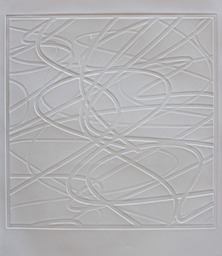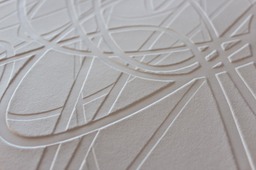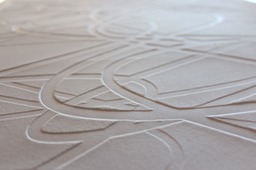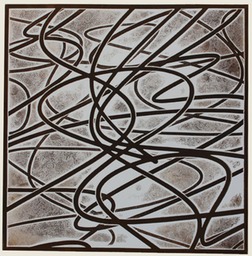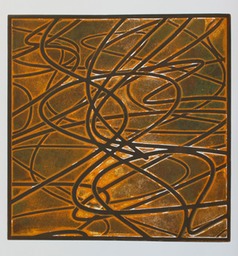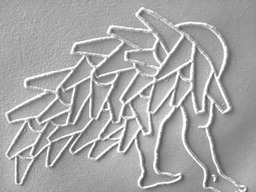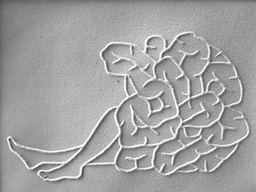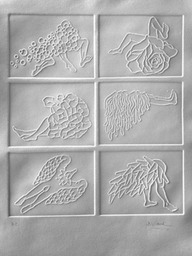This second residency of artist Luvier Casali (Paraguay 1982) in the electrolytic ething workshop was the first residency with a new format – the guest artists makes an exchange with Alfonso Crujera. In exchange with lending support and assistance with Alfonso’s work - etching place and creating prints, the resident artist received the opportunity to work on his own etchings.
For three weeks in April, Luvier Casali assisted the master Alfonso Crujera in etching three zinc plates using the ‘passive electro-etching process’, an electrolyte system that does not use electricity. A copper plate (cathode) is inserted in a tank with a copper sulfphate solution. In front of this is placed the zink plate to be etched (anode), with a distance of an inch between the two plates. The plates are joined together ouside of the tank by contact strips attached to each plate. This process, like a voltaic cell, generates an electric current of a very low voltage, that bites the metal with great intensity and perfection. This technique allows deep bites on places printed without ink, or inked with different colors on a single plate with a roller.
In addition to Crujera’s plates, Luvier Casali worked on a series of 6 plates of his own with this same technique.
Pictures from the workshop
Alfonso Crujera works on a plate


Luvier Casali's plates
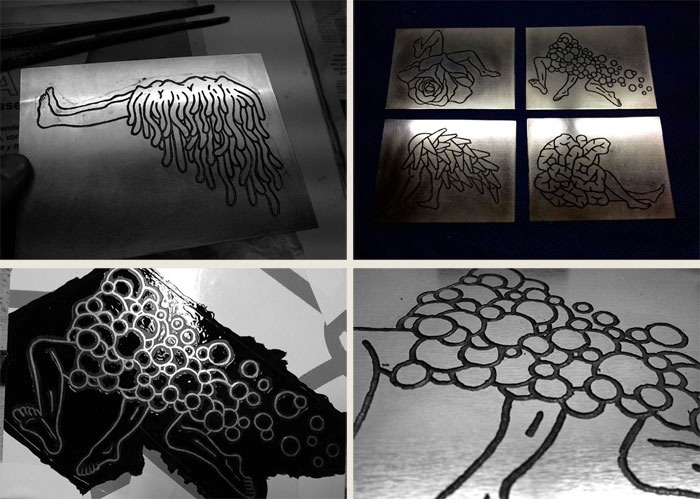
Juanjo Valencia came to help us print a plate
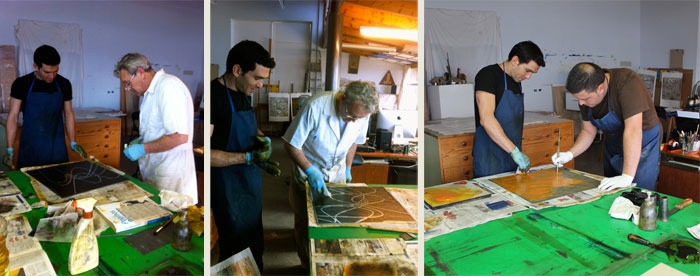
Luvier Casali speaks about his experience in the workshop-residency
The goal of my second stay at the residence was to assist my master Crujera in the production of a series of large-size zinc plates etched using passive electro-etching.
I rarely have helped artists in their personal production, but the fact of accompanying a creator like Alfonso in his creative process has undoubtedly been an extremely rich experience, both from the perspective of knowledge and personal gratification. We have achieved surprising results and without being pretentious, perhaps it is the first time (in the context of contemporary printmaking) that experiments are being carried out with this technique, in these formats and with the technical rigor that characterizes the work of this artist.
Passive electro-etching was one of the techniques that attracted me most from the time of my first residence here; this experience has allowed me to delve deeper and broaden the knowledge already acquired, perfecting it. On this occasion, and thanks to the exchanges with my teacher, I have been able to adapt the expressive possibilities of this technique to my aesthetic and conceptual concerns, achieving amazing results in terms of technical finish. I reiterate that, without a shadow of a doubt, this residence offers all the best in favorable conditions for creation and experimentation in the broad-ranging territory of non-toxic printmaking.
Etchings by Alfonso Crujera and Luvier Casali
